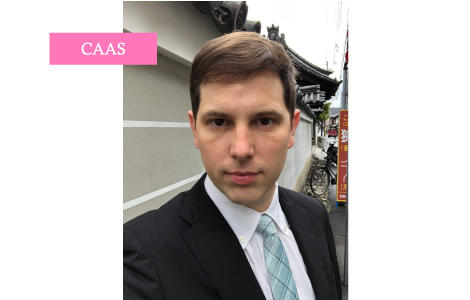Fabio Gygi

- 役職/
Position - Former Visiting Professor
- 研究分野/
Field - Anthropology
Tell me about your research briefly.
There are two projects I am pursuing at the moment. One is an ethnographic study of memorial services for dolls (人形供養), which happen almost every weekend at both shrines and temples all over Japan in this season. This is an extension of earlier work I carried out on hoarding and disposal in Tokyo. I am particularly interested in the paradoxical ways in which the disposal of unwanted things is made possible by giving ritual form to feelings of loss, separation and anxiety.
The second topic I only just started investigating is an anthropological approach to dreams and dreaming. Dreams are usually considered to be a radically subjective and private experience and thus 'belong' to the realm of psychology. But what we dream about in invariably a reflection of the fears, wishes and hopes that the dreaming subject has as a member of a community. My aim is to develop a method of sharing dream narratives that puts the interpersonal meaning of dreams in the foreground.
In TUFS what is your lecture?
I am teaching a class on comparative medical anthropology, which is the cross-cultural study of different medical systems and ideas. It is perhaps a bit outside the box for TUFS who does not have a social science department, but I think it is increasingly important to understand how sickness and healthcare are understood in different cultural contexts, from indigenous ways of healing to state-of-the-art reproductive technologies. The course discusses topics such as depression in Japan, the medicalization of social problems and ethical issues such as organ transplantation and brain death.
The block seminar I am teaching in February 2020 on dreams and dreaming will be more experimental and allows students to be more creative. Please sign up if you are interested in dreams, new ideas and creative thinking!
Japan studies in TUFS have issued a policy to lay emphasis on the reinforcement of the Japan's ability to deliver a message to the world. What do you think is necessary for that?
Japan has a lot to offer to the world, but the message is often not heard clearly enough. The ability to communicate is of profound importance, both in Japanese and in foreign languages. There is still a widespread prejudice among Japanese that to be fluent in a foreign language is somehow 'un-Japanese'. This is I think a very harmful perception.
How about TUFS and students?
I have taught classes at other universities in Japan and I must say I was very pleasantly surprised when I started teaching here. All my students are fluent in English and not shy at all to speak up in class or outside of it, it is indeed a joy to debate even complicated medical subjects with them! I really enjoy doing research here as well, we have wonderful offices, excellent support and most importantly, time to actually think and write. TUFS as a whole I think has a surprisingly low profile for the excellent teaching and research that is undertaken here.
Compared with overseas, what is good in Japan and not good in Japan?
While London is already plunged into the gloom and drizzle of winter, we still have wonderful crisp autumn days here. Food and drink is another thing to emphasize, especially the variety of sake! The only thing I was not too keen on was the typhoon last month.




